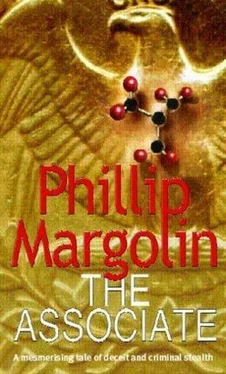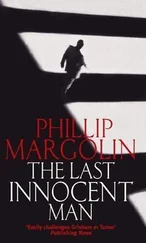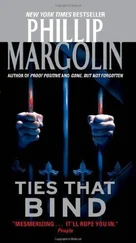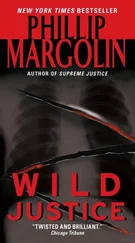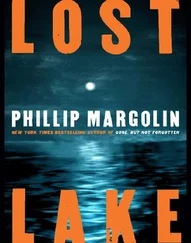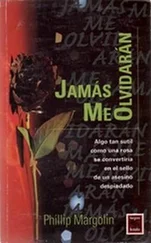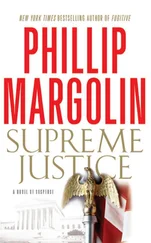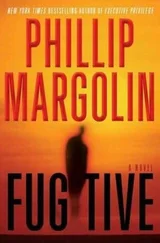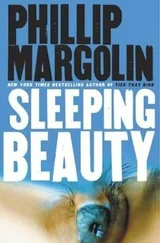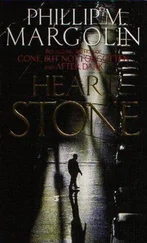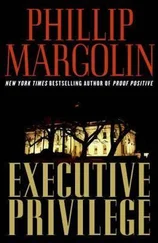Phillip Margolin - The Associate
Здесь есть возможность читать онлайн «Phillip Margolin - The Associate» весь текст электронной книги совершенно бесплатно (целиком полную версию без сокращений). В некоторых случаях можно слушать аудио, скачать через торрент в формате fb2 и присутствует краткое содержание. Жанр: Триллер, на английском языке. Описание произведения, (предисловие) а так же отзывы посетителей доступны на портале библиотеки ЛибКат.
- Название:The Associate
- Автор:
- Жанр:
- Год:неизвестен
- ISBN:нет данных
- Рейтинг книги:4 / 5. Голосов: 1
-
Избранное:Добавить в избранное
- Отзывы:
-
Ваша оценка:
- 80
- 1
- 2
- 3
- 4
- 5
The Associate: краткое содержание, описание и аннотация
Предлагаем к чтению аннотацию, описание, краткое содержание или предисловие (зависит от того, что написал сам автор книги «The Associate»). Если вы не нашли необходимую информацию о книге — напишите в комментариях, мы постараемся отыскать её.
The Associate — читать онлайн бесплатно полную книгу (весь текст) целиком
Ниже представлен текст книги, разбитый по страницам. Система сохранения места последней прочитанной страницы, позволяет с удобством читать онлайн бесплатно книгу «The Associate», без необходимости каждый раз заново искать на чём Вы остановились. Поставьте закладку, и сможете в любой момент перейти на страницу, на которой закончили чтение.
Интервал:
Закладка:
Phillip Margolin
The Associate
PROLOGUE
An icy wind whipped down Mercer Street, rattling awnings, scattering paper scraps and raking Gene Arnold’s cheeks raw. He turned up his coat collar and ducked his head to avoid the arctic chill. This wasn’t the Arizona lawyer’s first visit to New York City, but it was his first winter visit and he was unprepared for the biting cold.
Arnold was an unremarkable man, someone you could sit opposite for an hour and not remember five minutes later. He was of average height, tortoiseshell glasses magnified his brown eyes, and his small, bald head was partially ringed by a fringe of dull gray hair. Arnold’s private life was as placid as his personality. He was unmarried, read a lot, and the most exciting thing he did was play golf. Nothing that had happened to him had even registered as a blip on the world’s radar screen except for a tragedy he had endured seven years before.
Arnold’s law practice was as tedious as his life, business transactions mostly. He was in New York to secure financing for Martin Alvarez, the king of the Arizona used car market, who wanted to expand into New Mexico. Arnold’s successful meeting with a potential investor had ended sooner than expected, leaving him time to wander around SoHo in search of a painting he could add to his small collection of art.
Arnold’s eyes teared and his nose started to run as he looked around desperately for shelter from the wind. An art gallery on the corner of Mercer and Spring streets was open and he ducked into it, sighing with relief when a blast of warm air greeted him. A thin young woman dressed in black was leaning on a counter near the front of the store.
She looked up from the catalog she was reading. “Can I help you?” she asked, flashing him a practiced smile. “Just looking,” Arnold answered self-consciously. The art hanging on the white walls of the gallery did not fit into one category. Arnold glanced briefly at a series of collages with a feminist theme before stopping to admire some paintings that were more his style. Back home he owned several western scenes, brown and red mesas at sunset, cowboys on the trail, that sort of thing. These landscapes were of New England, seascapes really.
Dories on a raging ocean, waves breaking on a deserted beach, a cottage scarred by the sea’s salt spray. Very nice. Arnold wandered over to a group of black-and-white photographs entitledCouples. The first grainy shot showed two teenagers holding hands in a park. They were viewed from behind, leaning into each other, their heads almost touching. The photographer had captured their intimate moment perfectly. The picture made Arnold sad. He would have given anything to be that boy with that girl. Being alone was the hardest thing. The next photo showed a black couple sitting in a cafe. They were laughing, his head thrown back, mouth open, she smiling shyly, delighted that she was the source of such joy. Arnold studied the photo. It wasn’t the type of art that he usually purchased, but there was something about the photograph that drew him to it. He checked the information on the small, white rectangle next to the photo and learned that the photographer was Claude Bernier and the price was within his means. Arnold moved to the third photograph in the series.
It showed a man and a woman dressed for the rain striding across a square in the center of some city. They were angry, faces tight. The woman’s eyes blazed, the man’s mouth was a grim line. “Oh, my God,”
Arnold said. He fell forward, bracing himself against the wall. “Sir?”
The young woman was staring at him, alarmed by his ashen pallor and his inability to stand upright. Arnold stared back, panicky, light-headed. “Are you okay?” Arnold nodded, but the woman was unconvinced. She hurried forward and slipped a hand under his elbow.
“Is there someplace I can sit down?” he asked weakly. The woman led him up front to a chair behind the counter. Arnold sagged onto it and put his hand to his forehead. “Can I get you some water?” she asked anxiously. Arnold saw that she was trying to hold it together. He imagined that she was thinking “heart attack” and wondering what it would be like to sit with a corpse while she waited for the police.
“Water would be good. I’m okay, really. Nothing to worry about,” he said, trying to reassure her. “I’m just a little dizzy.” By the time the woman returned with the water Arnold had regained his composure.
He took two sips and breathed deeply. When he looked up the woman was watching him and worrying her hands. “I’m much better.” He gave her a weak smile. “I’m just not used to this cold.” “Please, sit here as long as you want.” “Thanks.” He paused, then pointed toward the exhibit. “The photographer, Bernier, does he live near here?” “Claude?
Sure. He’s got a walk-up in Chelsea.” “I want to buy one of his pictures.” Arnold stood up slowly, steadier now, and led the woman to the photograph of the angry couple. As he crossed the room doubts assailed him, but they melted away as he drew closer to the scene that Bernier had captured. “Do you think he’d see me today?” Arnold asked as he produced a credit card without moving his eyes from the photo.
The woman looked worried. “Do you feel up to it?” Arnold nodded. She seemed on the verge of trying to change his mind. Then she carried the photograph to the front to ring up the purchase. As she waited for clearance from the credit-card company she used the phone. Arnold sat down again. His initial shock had abated and had been replaced by a sense of urgency and purpose. “Claude can see you anytime,” the woman told him as she handed Arnold his purchase and stationery from the gallery bearing the photographer’s address and phone number. He memorized the address and placed the paper in his jacket pocket.
“Thank you. You’ve been very kind,” he told the salesclerk before stepping into the street. A frigid wind greeted him, but Gene Arnold was too distracted to notice.
ONE
The headlight beams of Dr. Sergey Kaidanov’s battered SAAB bounced off a stand of Douglas firs then came to rest on the unpainted wall of a one-story, cinderblock building buried in the woods several miles from downtown Portland. As soon as Kaidanov unlocked the front door of the building the rhesus monkeys started making that half-cooing, half-barking sound that set his nerves on edge. The volume of noise increased when Kaidanov flipped on the lights. Most of the monkeys were housed in two rooms at the back of the building. Kaidanov walked down a narrow hall and stood in front of a thick metal door that sealed off one of the rooms. He slid back a metal sheet and studied the animals through the window it concealed. There were sixteen rhesus monkeys in each room. Each monkey was in its own steel mesh cage. The cages were stacked two high and two across on a flatcar with rollers.
Kaidanov hated everything about the monkeys-their sour, unwashed smell, the noises they made, the unnerving way they followed his every move. As soon as Kaidanov’s face was framed in the window, the monkey two from the door in the top cage leaped toward him and stared him down. Its fur was brownish gray and it gripped the mesh with hands containing opposable thumbs on both arms and legs. This was the dominant monkey in the room and it had established its dominance within three weeks even though there was no way it could get at the others. Rhesus monkeys were very aggressive, very nervous, and always alert. It was bad etiquette to look one in the eye, but Kaidanov did it just to show the little bastard who was the boss. The monkey didn’t blink. It stretched its doglike muzzle through the mesh as far as it could, baring a set of vicious canines. At two feet tall and forty pounds, the monkey didn’t look like it could do much damage to a one-hundred-and-ninety-pound, five-foot-eight male human, but it was much stronger than it looked. Kaidanov checked his watch. It was three in the morning. He couldn’t imagine what was so important that he had to meet here at this hour, but the person whose call had dragged him from a deep sleep paid Kaidanov to do as he was told, no questions asked. Kaidanov needed caffeine. He was about to go to his office to brew a pot of coffee when he noticed that the padlock on the dominant monkey’s cage was open. He must have forgotten to close it after the last feeding. The scientist started to open the door but stopped when he remembered that the key to the monkey rooms was in his office.
Читать дальшеИнтервал:
Закладка:
Похожие книги на «The Associate»
Представляем Вашему вниманию похожие книги на «The Associate» списком для выбора. Мы отобрали схожую по названию и смыслу литературу в надежде предоставить читателям больше вариантов отыскать новые, интересные, ещё непрочитанные произведения.
Обсуждение, отзывы о книге «The Associate» и просто собственные мнения читателей. Оставьте ваши комментарии, напишите, что Вы думаете о произведении, его смысле или главных героях. Укажите что конкретно понравилось, а что нет, и почему Вы так считаете.
